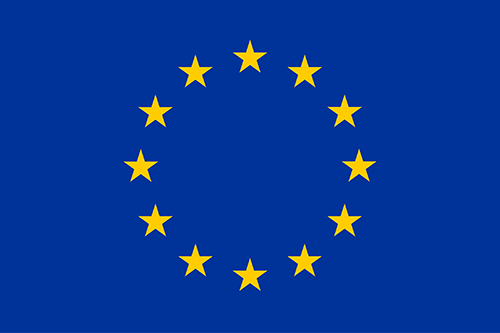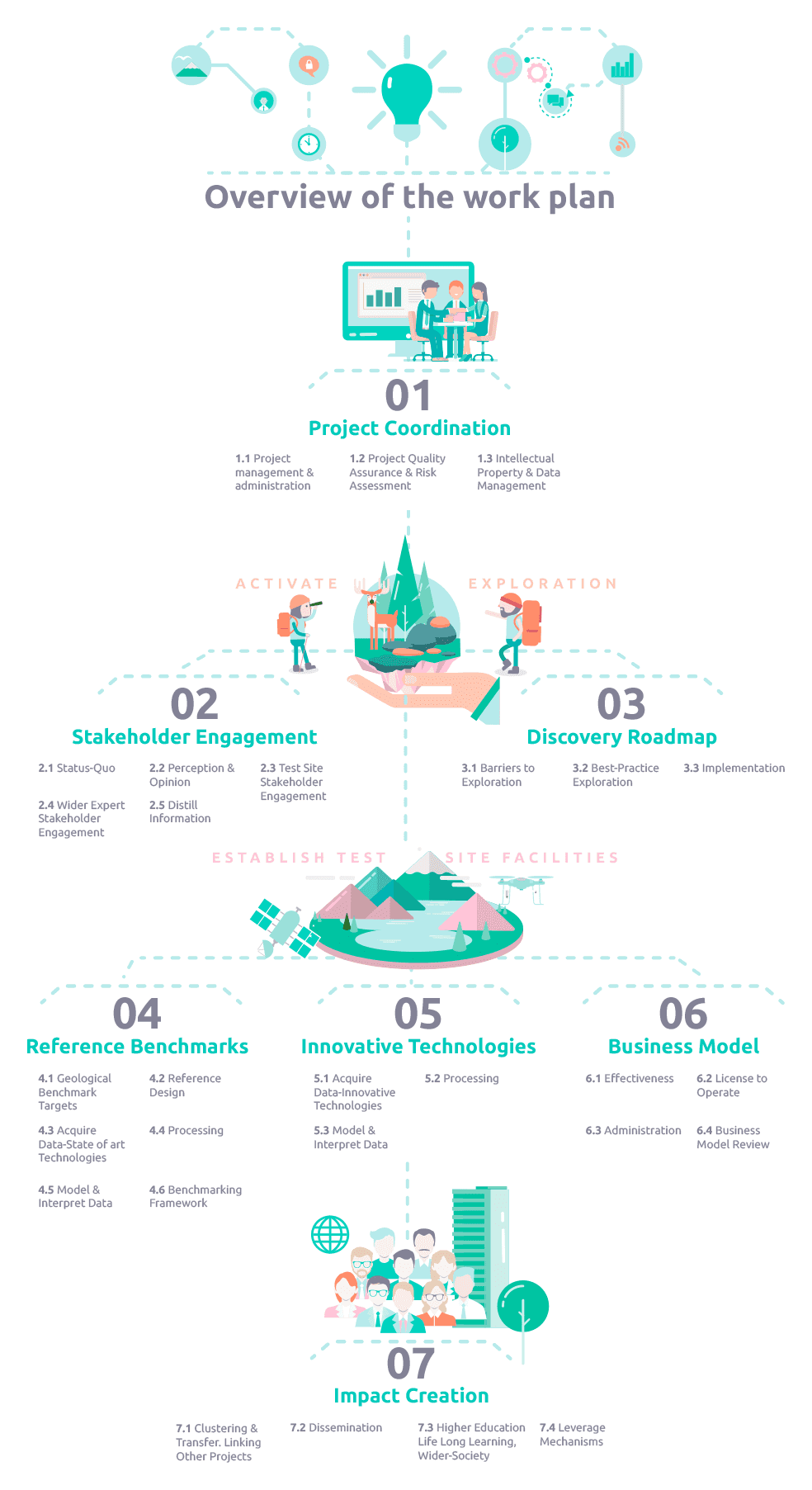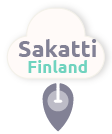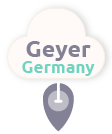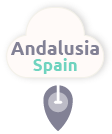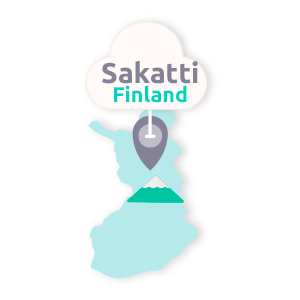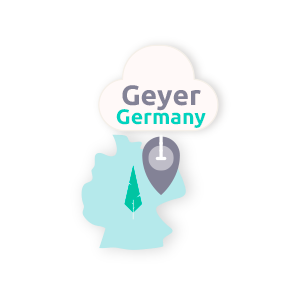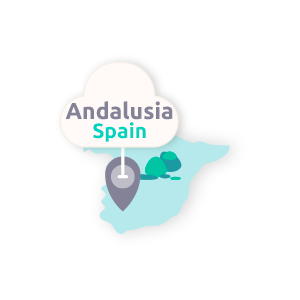About the project
The future of mineral exploration in the EU – The INFACT project
Introduction
Introduction
Exploration discovery of mineral resources requires innovations that either change the geological targets of exploration, the physical places that are reached, or the manner in which they are explored. Despite its rich history of mining and residual mineral wealth, current conditions within the EU present a number of social, political, legislative, cost, technical and physical obstacles to mineral exploration: obstacles to be overcome by innovation, dialogue and reform.
The Innovative, Non-invasive and Fully Acceptable Exploration Technologies (INFACT) project unites stakeholders of Europe’s future raw materials security in its consortium and activities. Via effective engagement of civil society, state, research and industry, the project will focus on each of these obstacles.
It will co-develop improved systems and innovative technologies that are more acceptable to society and invigorate and equip the exploration industry, unlocking unrealised potential in new and mature areas. The project will develop innovative geophysical and remote sensing technologies (less-invasive than classical exploration methods) that promise to penetrate new depths, reach new sensitivities and resolve new parameters.
The project will also set the EU as a leader on the world stage by establishing permanent infrastructure to drive innovation in the next generation of exploration tools: tools that are cost-effective, designed for EU conditions and its raw materials strategy, and high-performing in terms of environmental impact, social acceptability, and technical performance.
INFACT is comprised of the following main components:
01
Development and test of innovative, non-invasive exploration technologies;
02
Foundation of 3 reference sites for exploration technology in the south, centre and north of Europe;
03
Stakeholder engagement, education and policy reform.
These actions combine to reach each of the main areas in which the EU has the power to influence change in its raw materials security.
Project objectives
With the goal of improved raw materials security in the EU, INFACT has the ambition to increase chances of discovery via access to new physical places and application of innovative exploration methods. This leads to the following three main objectives described below.

Engage society

Invigorate exploration
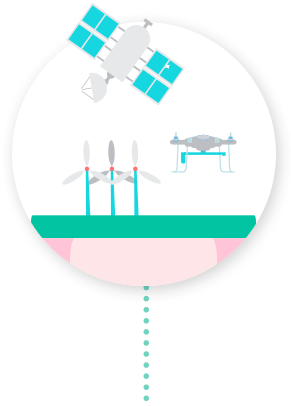
Impact innovation, knowledge and growth
Exploration industry in Europe
Engage society

Both in its consortium and activities, the project unites relevant stakeholders from civil society, state, research and industry. The partners want to underline Europe’s technical strengths in exploration with the best social and environmental practices. Civil society and exploration industry will be the foremost beneficiaries of this concept.
The project aims to engage civil society and build trust in the raw materials cycle. It is to raise both awareness and acceptance of environmentally-friendly, safe and effective mineral exploration methods. And it strives to establish a view of the best practices for exploration that is shared by civil society, state and industry as well as exchanging these within the EU.
Invigorate exploration

Based on stakeholder dialogue and research one more of the outcomes of the project will be a “Discovery Roadmap”, which will address the improvement of the systems affecting exploration conditions in the EU, making the region a more attractive target for mining and investors. In this context the barriers to exploration will be studied (including legal and legislative obstacles, data quality and availability, political and social challenges, land rights and social licenses to operate) as well as exploring mechanisms for lowering the complexity, time, financial costs and risks of mineral exploration. What is more, the project partners will disseminate both knowledge and perception of innovative, environmentally-friendly and safer exploration approaches to the public, state and industry practitioners.
Impact innovation, knowledge and growth

The endeavor builds on Europe’s strengths in research, innovation and knowledge, and is targeted at facilitating growth, the most important beneficiaries being exploration technology developers, mining industry and other industries.
Project objectives
With the goal of improved raw materials security in the EU, INFACT has the ambition to increase chances of discovery via access to new physical places and application of innovative exploration methods. This leads to the following three main objectives described below.

Engage society

Invigorate exploration

Impact innovation, knowledge and growth
Exploration industry in Europe
Engage society

Both in its consortium and activities, the project unites relevant stakeholders from civil society, state, research and industry. The partners want to underline Europe’s technical strengths in exploration with the best social and environmental practices. Civil society and exploration industry will be the foremost beneficiaries of this concept.
The project aims to engage civil society and build trust in the raw materials cycle. It is to raise both awareness and acceptance of environmentally-friendly, safe and effective mineral exploration methods. And it strives to establish a view of the best practices for exploration that is shared by civil society, state and industry as well as exchanging these within the EU.
Invigorate exploration

Based on stakeholder dialogue and research one more of the outcomes of the project will be a “Discovery Roadmap”, which will address the improvement of the systems affecting exploration conditions in the EU, making the region a more attractive target for mining and investors. In this context the barriers to exploration will be studied (including legal and legislative obstacles, data quality and availability, political and social challenges, land rights and social licenses to operate) as well as exploring mechanisms for lowering the complexity, time, financial costs and risks of mineral exploration. What is more, the project partners will disseminate both knowledge and perception of innovative, environmentally-friendly and safer exploration approaches to the public, state and industry practitioners.
Impact innovation, knowledge and growth

The endeavor builds on Europe’s strengths in research, innovation and knowledge, and is targeted at facilitating growth, the most important beneficiaries being exploration technology developers, mining industry and other industries.
Methodology
Methodology
Approach
01
Establish EU reference regions
One main part of the project is to establish permanent technical infrastructure facilities, called reference regions, which provide industry-relevant environments representing a variety of social, physical and technical challenges in the EU in the context of exploration as well as enabling datasets. So far the availability of reference sites in the EU to aid in the development of a new generation of discovery tools has been inadequate.
In the reference regions, which are marked by active or historical mining activities focused on both industry and high-technology metals, the researchers will test and establish benchmarks for non-invasive exploration methods. This will be accompanied by activities involving public authorities as well as local administrations and communities.
There will be three EU reference regions:


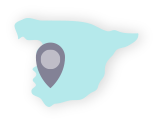
North
Sakatti is a copper-nickel-platinum group elements deposit in the far north of Finland, situated around 150 kilometers north of the Arctic Circle. It is owned by Anglo American.
Centre
This reference region centers around the small town of Geyer in the Ore Mountains (Erzgebirge), situated app. 110 kilometers south of Leipzig, Eastern part of Germany, and with a long history of ore mining. The region is known for its deposits of tin, zinc, tungsten, molybdenum, copper, iron, silver and indium.
South
This reference region comprises two mining sites in the Iberian Pyrite Belt, both in Andalusia, South of Spain:
Cobre Las Cruces is an open pit copper mine and on-site plant in Gerena, 20 kilometers northwest of Seville. It is operated by First Quantum Minerals.
Minas de Ríotinto is a well-known ancient opencast polymetallic mine located in Huelva province, 65 kilometers northwest of Seville. It is operated by Atalaya Mining.
North
Sakatti is a copper-nickel-platinum group elements deposit in the far north of Finland, situated around 150 kilometers north of the Arctic Circle. It is owned by Anglo American.
Centre
This reference region centers around the small town of Geyer in the Ore Mountains (Erzgebirge), situated app. 110 kilometers south of Leipzig, Eastern part of Germany, and with a long history of ore mining. The region is known for its deposits of tin, zinc, tungsten, molybdenum, copper, iron, silver and indium.
South
This reference region comprises two mining sites in the Iberian Pyrite Belt, both in Andalusia, South of Spain:
Cobre Las Cruces is an open pit copper mine and on-site plant in Gerena, 20 kilometers northwest of Seville. It is operated by First Quantum Minerals.
Minas de Ríotinto is a well-known ancient opencast polymetallic mine located in Huelva province, 65 kilometers northwest of Seville. It is operated by Atalaya Mining.
02
Develop innovative exploration technologies
The researchers will develop innovative exploration technologies and processes which are less invasive than classical methods and promise to penetrate new depths, reach new sensitivities and resolve new physical properties. The project addresses also the geological survey platforms from which the technologies are used, focusing on multi-sensor drones, which integrate multiple exploration methods and are expected to be one of the most disruptive innovations in mineral exploration.
Technologies are based on various physical parameters, including magnetics, electromagnetics and infrared spectroscopy. The partners will apply new technologies for mineral exploration like superconducting sensors or, more precisely, superconducting quantum interference devices (SQUIDs). These are the most sensitive magnetic field sensors for geophysical applications and their exceptional performance will be demonstrated in the project. In the field of electromagnetics technology will be pushed concerning data processing and deep geological targets which could not be addressed hitherto. With regard to spectroscopy one main target of the project will be to integrate data from the visible to near-infrared, shortwave-infrared and longwave-infrared systems, allowing to jointly analyze many more minerals relevant to exploration than possible so far.
These technologies can as well be applied in other fields, such as hydrogeology, environmental monitoring and remining (i.e. recovery of raw materials from tailings), so technology development will drive innovation in several fields.
03
Benchmark technologies
Both state-of-the-art and innovative exploration technologies will be benchmarked in terms of environmental impact, social acceptability and technical performance in order to increase transparency and competition and to inform decision-makers in their technology choices. In order to do so, helicopters, airplanes and drones will be used in the reference regions to apply the technologies. The aim is to create a technology certification system.
04
Engage with key stakeholders and implement exploration practices that are more acceptable to society
Engagement with stakeholders laterally and vertically across the EU (civil society, state, research and industry), globally and at the various reference sites will raise awareness of sustainable exploration methods, build public trust in the raw materials cycle, result in a shared vision of best practice in exploration that would enable to envisage and implement exploration practices that are more acceptable to society. Improved license to operate could potentially result in access to prospective areas that have remained under-explored due to social opposition.
05
Provide a Discovery Roadmap
Based on stakeholder dialogue and research, the project will produce a “Discovery Roadmap” that will prioritise recommendations associated with policy reform, plans for improved availability of quality exploration data, and education gaps related to civil society, the state and industry with the goal to improve systems that affect exploration conditions in the EU to make the region a more attractive target for exploration investment on a global stage. It will address the barriers to exploration in raw materials-producing regions (the EU, Canada and Australia), explore mechanisms for lowering the complexity, time and financial costs and risks of exploration, and identify education-related mechanisms targeting the public, state and industry practitioners related to knowledge and perception of innovative, environmentally friendly and safer exploration approaches.
Expected impact
The over-arching impact of INFACT will be to contribute to an increase in the chances of exploration discovery: essential to increased reserves of strategic minerals in the EU. Chances of exploration discovery will be optimised by encouraging an effective, sustainable and active exploration industry, made achievable by focusing on the highest priority places (high Critical Raw Material prospectivity; low investment risk).
Reference sites
Spain, Germany, Finland
Innovative approach
Engagement, education, best practice exploration, sustainability, economically.
Stakeholders
Civil society, EU States, Research, Organisations, Tecnology, Developers, Service Providers, Exploration companies.
Exploration
License to operate, New physical places, News methods, Invigorate exploration.

Impact application
Engagement & Discovery.
Impact for Stakeholders
Improved systems, Innovation Growth, Improved Raw Materials Security.

Effective
The INFACT reference sites focus on innovative developments within a suite of exploration techniques that have a track-record for mineral discovery, and a new generation of exploration technologies that measure new parameters and reach new places (at depth, re-mining, remote locations).
Active
INFACT’s “Roadmap to discovery” provides a pathway for the EU to reduce its barriers to exploration and become a more attractive target for exploration investment: easier, lower cost and lower investment risk to explore in the highest priority places. Exploration costs will be further impacted by development and commercialisation of new cost-effective technologies, facilitated by INFACT’s reference sites. The focused innovation and generation of know-how catalysed by the reference sites will further fuel invigoration of the exploration industry, whilst increasing the chances of discovery on a number of levels.
Innovation & Growth
An invigorated exploration and mining sector leads to increased competition. This is compounded by an increased transparency provided by the proposed independent (EU-approved) certification service for exploration technologies: high-performing innovative technology developments will be rewarded by the market. Much of this reward will flow to tech-oriented SMEs (for whom major aspects of the reference sites will be designed) in terms of improved market recognition and growth (and down-stream job creation). Co-design of the reference sites by industry will maximise their relevance, credibility, and therefore value within the market.
Sustainable
New exploration technologies will no longer just innovate with respect to technical performance: an independent certification service will also reward them for improved environmental impact and social acceptability performance. This increased transparency will allow explorers to make a more informed choice of the most effective and sustainable tools to satisfy their needs. INFACT’s activities improve participation of civil society in an exchange of knowledge with a wide range of other important stakeholders in raw materials exploration. Improved understanding of the risks and rewards of exploration will provide enhanced opportunity to build trust and acceptance. Civil society, policy makers and industry are brought together by INFACT to co-design and co-develop both the vision of more sustainable exploration practices (“Best-practice exploration”) and a business model for co-implementation of the reference sites. Participation of civil society, recognition of sustainable practices and availability of sustainable exploration tools will all contribute to improved license to operate: the is a key factor to accessing under-explored, prospective areas of the EU.
Expected impact
The over-arching impact of INFACT will be to contribute to an increase in the chances of exploration discovery: essential to increased reserves of strategic raw materials in the EU. Chances of exploration discovery will be optimised by encouraging an effective, sustainable and active exploration industry, made achievable by focusing on the highest priority places (high Critical Raw Material prospectivity; low investment risk).
Reference sites
Spain, Germany, Finland
Innovative approach
Engagement, education, best practice exploration, sustainability, economically.
Stakeholders
Civil society, EU States, Research, Organisations, Tecnology, Developers, Service Providers, Exploration companies.
Exploration
License to operate, New physical places, News methods, Invigorate exploration.
Impact application
Engagement & Discovery.

Impact for Stakeholders
Improved systems, Innovation Growth, Improved Raw Materials Security.

Effective
The INFACT reference sites focus on innovative developments within a suite of exploration techniques that have a track-record for raw material discovery, and a new generation of exploration technologies that measure new parameters and reach new places (at depth, re-mining, remote locations).
Active
INFACT’s “Roadmap to discovery” provides a pathway for the EU to reduce its barriers to exploration and become a more attractive target for exploration investment: easier, lower cost and lower investment risk to explore in the highest priority places. Exploration costs will be further impacted by development and commercialisation of new cost-effective technologies, facilitated by INFACT’s reference sites. The focused innovation and generation of know-how catalysed by the reference sites will further fuel invigoration of the exploration industry, whilst increasing the chances of discovery on a number of levels.
Innovation & Growth
An invigorated exploration and mining sector leads to increased competition. This is compounded by an increased transparency provided by the proposed independent (EU-approved) certification service for exploration technologies: high-performing innovative technology developments will be rewarded by the market. Much of this reward will flow to tech-oriented SMEs (for whom major aspects of the reference sites will be designed) in terms of improved market recognition and growth (and down-stream job creation). Co-design of the reference sites by industry will maximise their relevance, credibility, and therefore value within the market.
Sustainable
New exploration technologies will no longer just innovate with respect to technical performance: an independent certification service will also reward them for improved environmental impact and social acceptability performance. This increased transparency will allow explorers to make a more informed choice of the most effective and sustainable tools to satisfy their needs. INFACT’s activities improve participation of civil society in an exchange of knowledge with a wide range of other important stakeholders in minerals exploration. Improved understanding of the risks and rewards of exploration will provide enhanced opportunity to build trust and acceptance. Civil society, policy makers and industry are brought together by INFACT to co-design and co-develop both the vision of more sustainable exploration practices (“Best-practice exploration”) and a business model for co-implementation of the reference sites. Participation of civil society, recognition of sustainable practices and availability of sustainable exploration tools will all contribute to improved license to operate: this is a key factor to accessing under-explored, prospective areas of the EU.
‘This project has received funding from the European Union’s Horizon 2020 research and innovation programme under grant agreement nº 776487.’
